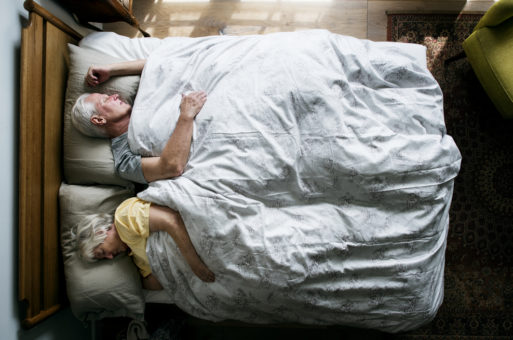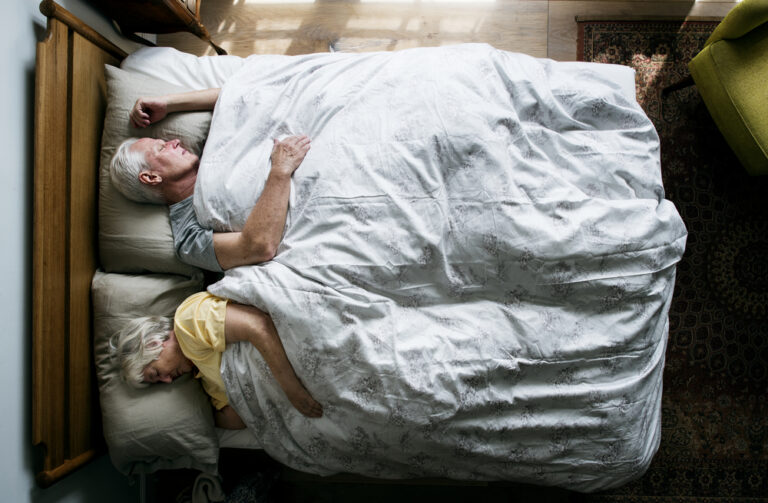
Getting truly restful sleeps at night is an important part of maintaining optimum health. That is true for all of us, regardless of our ages. It’s important that we get approximately seven to eight hours of sleep each night in order to consider ourselves good sleepers. However, the older we get, the harder it can be to get adequate rest at night.
Why do elderly people have harder times falling asleep?
As The Good Care Group in London, England explains, melatonin is the hormone that governs our sleep patterns within our bodies. This hormone decreases in older adults. As well, because elderly people often contend with aches, pains and other physical ailments more than their younger counterparts, they can have a lot of trouble getting comfortable in bed.
“Disrupted sleep often leads to older people spending longer in bed, or sleeping at intervals throughout the day to catch up,” notes The Good Care Group on their website, “By talking to a health professional with a view to removing or mitigating the causes of disrupted sleep, you can take tangible steps towards improving your loved-one’s sleeping pattern and overall quality of life.”
What are the most common causes of disruptive sleep?
The most common causes of disrupted sleep are stress, trauma, medication and illness/physical pain brought on by such medical conditions as arthritis, osteoporosis, diabetes, acid reflux and Alzheimer’s. Certain medicines can also make it hard to sleep. Talk to your physician to learn about the possible ramifications of the medications your elderly parent is taking.
“Dealing with pain can keep you awake,” states FamilyDoctor.org, “Some health conditions can even cause sleep problems. Diabetes and prostate issues can contribute to sleep disturbance and make you fatigued. The problem caused by these conditions is that you are being woken up to urinate many times through the night. Conditions such as congestive heart failure or kidney disease may cause sleep issues.”
What can older adults do to promote healthier sleeping patterns?
An active lifestyle will certainly help. Of course, no one is saying that long and arduous workouts are necessary. Clearly, lifting heavy weights isn’t a recommended activity for senior citizens. However, they are still encouraged to partake in some light exercise each day. By having a regular daily routine that involves both physical and social activities, an older adult will exert more daytime energy, causing greater fatigue by bedtime.
As well, it’s important for an elderly person’s bedroom to be dark, quiet and comfortable. Removing audible and visual distractions will aid in creating a tranquil environment within which one can rest peacefully. This entails taking the TV out of the room or, at the very least, insisting upon shutting it off when in bed. To help things along, it’s wise to avoid any caffeine, sugar-based or alcoholic drinks before turning in for the night.
How do home hospital beds help seniors to sleep better at night?
Home hospital beds allow individuals to increase sleeping comfort by adjusting bed positioning with proper therapeutic mattress surfaces. These beds are perfect for individuals who have hard times getting in and out of bed, have sleeping issues, insomnia or are bedridden.
Learn all about the home hospital beds offered by LifeCare Mobility Solutions! Please don’t hesitate to call us at 416-267-9800 or email us at info@lifecaremobility.ca. You may also contact us by filling out the form on our Contact page!










